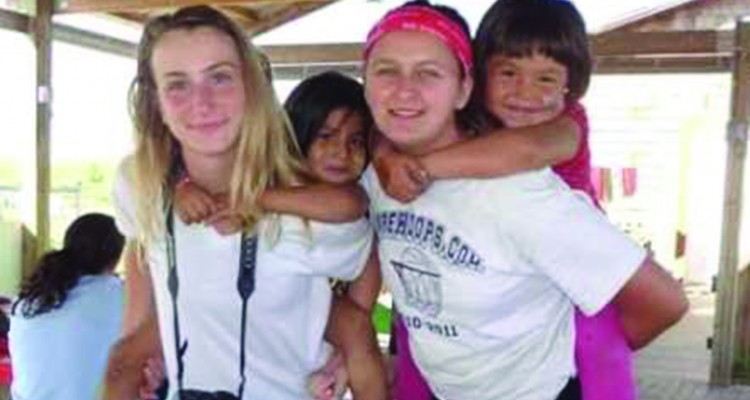Learning to respond to the worldwide humanitarian needs is the main goal of the new Humanitarian Action minor that was announced in collaboration with the Jesuit Universities Humanitarian Action Network.
JUHAN is a well-known club on campus that focuses on helping those devastated by humanitarian crises.
Sophomore Nicole Wroblewski, an active member of JUHAN, has recently declared the new minor.
“[Assistant Director of the Center for Faith and Public Life] Julie Mughal, the head of JUHAN, worked extremely hard to make this minor possible,” Wroblewski stated. “I had already taken most of the classes since I’m an international studies major and if anyone knows me I’m usually on some kind of service trip so it seemed like the perfect fit.”
For the minor, students need to take six classes, including one foundational course, two context and analysis courses, two skills and methods courses and HA 300, the Humanitarian Action Capstone.
Wroblewski, who was one of the first to sign the papers to declare the minor, also commented that “As a Fairfield student I have noticed many students are not aware of the world outside of the United States, even basic geography students mess up. I feel like this minor provides knowledge that is necessary to have in everyday life and gives students a broader perspective on the world we live in.”
She went on to state that “the minor goes above and beyond what it aims to teach.”
Wroblewski continued, “One of the minor’s goals is to bring awareness to certain issues going around the world today and the past … I feel like a huge problem when it comes to humanitarian crises today is ignorance. Many people are unaware of all the facts … This course sheds light on different sides of humanitarian crises that you were unaware of.”
Professor of Politics and International Studies Janie Leatherman, who is the director of the minor, said, “I think humanitarian action is going to become increasingly important not just nationally, but as part of our global obligations. This has been the trend already over the last several decades. The Jesuit tradition provides many tools and understandings for becoming men and women for others. Humanitarian action is one way to bring these together professionally and vocationally.”
Professor of History Dr. David McFadden, who teaches History of Global Humanitarian Action, commented, “I have been involved in history of contemporary conflict for a number of years and jumped at the chance to develop a course in the History of Global Humanitarian Action, to help students understand the last two hundred years of work on the global level to reduce conflict and aid the victims of wars and natural disasters.”
“Everyone who cares about the world should explore the minor,” he continued, “and get involved in humanitarian action. Be the change you want to see.”
McFadden explained that students learn the history, politics and ethics of humanitarian action along with participating hands-on in helping those in need during internships and the capstone course.
Students also seem to have an interest in learning more about the minor.
Junior Brianna Cocuzzo commented, “Before today, I didn’t know such a thing as the humanitarian action minor existed. However, I think it is an important and exciting minor because it will create world leaders, philanthropists and just human beings who can give back to the world as a whole.”
“I also think it is important to the Jesuit identity of Fairfield,” Cocuzzo continued, “and will allow students to live the important Jesuit values instilled in them here.”
Sophomore Emily Bittner also seemed interested in the subject, commenting that it was a great idea for a school like Fairfield.
Senior Hattie Briggs, who has taken the class on History of Global Humanitarian Action with McFadden, said that she found the class important for learning about the full extent of global humanitarian issues and that she is “glad that [the minor] came to fruition.”
“Even just taking that one class on [Global Humanitarian Action] which is outside of my majors, my fields of study, I learned so much, and there’s just so many more humanitarian crises that I learned about than are even covered in the news or that you hear about, beyond the Armenian, beyond the Holocaust, beyond Syria, everything. There’s still so much going on in every corner of the world, so it’s definitely important to pay attention to.”


Leave a Reply